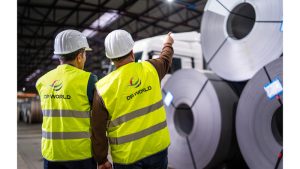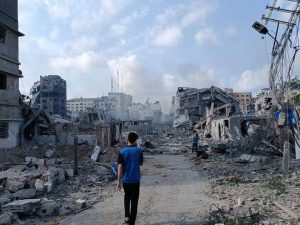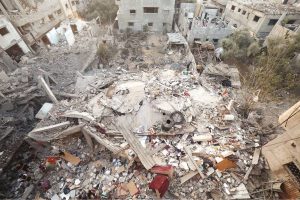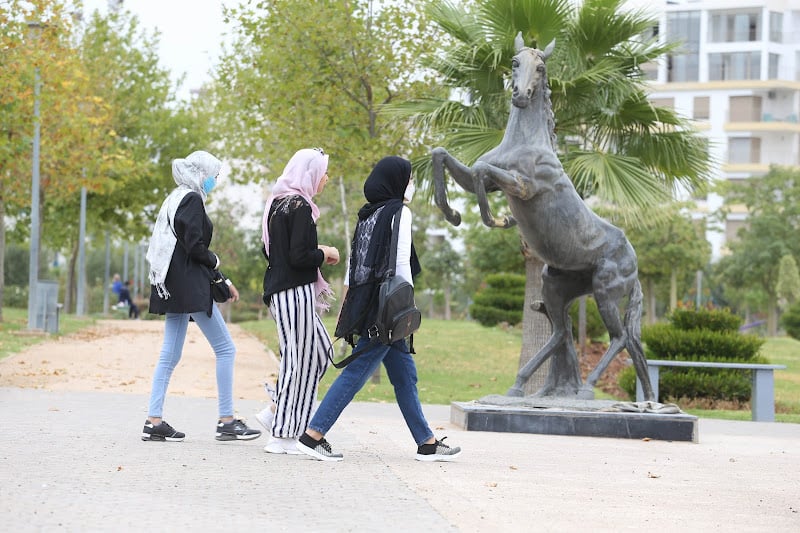Human rights associations specializing in defending women’s issues condemned the ongoing campaigns of “defamation and distortion targeting women in Morocco, whether on websites or social media pages,” considering that “these campaigns involve a systematic hate speech aimed at undermining the dignity of women and violating their human rights.”
The same associations confirmed that this wave of symbolic and media violence contributes to reproducing negative stereotypes about women and distorts the public debate away from the core of legitimate and just women’s demands, noting that “the organized attacks systematically seek to demonize women, especially activists, by linking them to images that harm morals or raise doubts about their integrity, in an attempt to undermine their presence in the public sphere and discourage them from continuing the struggle for equality and dignity.”
Bouchra Abdou, president of the Challenge Association for Equality and Citizenship, said that defamation campaigns targeting women in Morocco have become a worrying phenomenon reflecting the continued dominance of the patriarchal mentality within society, explaining that women are often presented as the “weaker link,” where “their bodies are reduced to being the property of society, and they are deprived of their right to freedom from the social constraints imposed on them.”
Abdou added in her statement to Hespress newspaper that this discriminatory view is not limited to individuals but is also reflected in public discourse that portrays women as a “symbol of society” without recognizing their independent individual identity, noting that “electronic defamation and symbolic assault spare no successful woman, whether in politics or civil society.”
The speaker pointed out that “active women are subjected to organized campaigns targeting their reputation and honor, and their images are circulated and commented on in a degrading manner, as if their bodies are subject to tailoring and objectification,” confirming that “this symbolic violence is systematically practiced to discourage women from attending and participating in public life.”
The human rights activist stated that “media and education are largely responsible for reproducing the stereotypes promoted about women,” emphasizing that “media today is required to play an active role in recognizing women’s competence and their actual contribution within society, instead of consolidating superficial and biased representations,” and stressed “the importance of correcting these images through serious and purposeful content reflecting diversity and focusing on the real roles women play in development.”
Abdou also addressed “the absence of sex education and the limited awareness of bodily rights,” considering that “this educational void produces social repression that turns into violence against women, whether in public spaces or on social media,” adding that “women are targeted simply because they differ from the traditional models on which society was raised, which is reflected in the offensive and humiliating comments they receive because of their clothing or lifestyle.”
The human rights activist called for “enforcing strict laws to protect women from defamation and digital violence,” stating: “The constant fear women live with hinders their professional and personal development and obstructs their participation in the country’s development, especially as we approach important national and regional milestones, while Morocco is a country of transit and transformation, so we must review ourselves as a society.”
Khadija Rbahi, member of the Democratic Association of Moroccan Women, said that “hate speech and discourses that seek to belittle women by spreading satanic and vulgar images of them have increasingly appeared recently,” highlighting that “this speech escalates especially when major projects start, such as reform projects to amend laws, as happened in the malicious campaigns targeting the Family Code.”
Rbahi added in a statement to Hespress newspaper that “this type of discourse is negatively influenced by media, especially what is known as yellow journalism that specializes in defaming people, aiming to undermine the humanity and dignity of women, and strives to present distorted images linking them to corruption and deviation, reflecting a systematic attempt to reproduce negative perceptions against women.”
The speaker explained that “these media campaigns have moved from the old stereotypical image of women as weak and absent from the media scene to more dangerous images seeking to establish new negative perceptions,” continuing that “these images, now broadcast even in public spaces, carry dangerous content that violates women’s human rights and seeks to direct public opinion against their just causes.”
Rbahi confirmed that the Democratic Association of Moroccan Women, along with various women’s and human rights forces, stand in solidarity with all women victims of defamation, stressing that “this struggle does not target men but is a confrontation with a system that refuses full recognition of women’s rights,” saying: “When we talk about the patriarchal mentality or system, we mean a traditional conservative system that tries to exclude women and keep them in lower ranks.”
The human rights activist concluded her statement by emphasizing that “those who seek to distort the image of women also seek to portray the conflict as if it is between men and women,” while the truth, according to her, is that “the feminist and human rights movement does not see it this way but considers the real conflict to be with the patriarchal system that marginalizes women and tries to deprive them of their full human rights.”













Recommended for you
Exhibition City Completes About 80% of Preparations for the Damascus International Fair Launch
Talib Al-Rifai Chronicles Kuwaiti Art Heritage in "Doukhi.. Tasaseem Al-Saba"
Unified Admission Applications Start Tuesday with 640 Students to be Accepted in Medicine
Egypt Post: We Have Over 10 Million Customers in Savings Accounts and Offer Daily, Monthly, and Annual Returns
His Highness Sheikh Isa bin Salman bin Hamad Al Khalifa Receives the United States Ambassador to the Kingdom of Bahrain
Al-Jaghbeer: The Industrial Sector Leads Economic Growth